How Did Warner Bros. Sell Us on the Feminist Fantasy of ‘Barbie’? By Ignoring Its Feminism (Opinion)

- Oops!Something went wrong.Please try again later.
- Oops!Something went wrong.Please try again later.
- Oops!Something went wrong.Please try again later.
[Editor’s note: The following article contains spoilers for “Barbie.”]
A doll that dismantles the patriarchy? Now that’s worth toying with.
More from IndieWire
Greta Gerwig’s smash hit “Barbie” plays — at times — like a meta commercial for the many products (Barbies, Kens, Skippers, oh my) the Mattel toy conglomerate designs, builds, and sells. But at its heart, “Barbie” is a strong feminist statement against the often pathetic ironies of patriarchal rule — even though Mattel brass might tell you otherwise.
The toy conglomerate, which produced this highly original movie, noticeably shied away from publicizing the film’s feminist messaging in much of the early looks at the film, including a “2001: A Space Odyssey” parody teaser. Yet “Barbie” is more “Dr. Strangelove” than “2001”: It’s political satire at its finest, which Warner Bros. also hid under a pink cloak and dagger.
So why wasn’t “Barbie” properly publicized as the feminist indictment of modern America that it is?
While “Barbie” is on track to becoming a billion-dollar film and has already made history as the highest-grossing opening weekend for a female director, the film’s core satirical messaging was essentially hidden by a Trojan horse marketing campaign and confused press tour. Viral Barbie-branded collaborations from Target to Burger King and discussions over whether the film was kid-friendly took over mainstream media for weeks leading up to the film’s July 21 premiere.
Few critics were invited to early preview screenings, while the cast behind Gerwig’s film, co-written by her partner Noah Baumbach, has long-promoted just how wacky and unexpected the movie is with no mention of its weightier messaging. Everything about “Barbie” stayed mum until its big reveal — early trailers only showed what amounts to the first half of the movie, a choice that Gerwig told IndieWire she was part of — and even then, the conversation around “Barbie” has been neutered to focus only on the shock of the box office success.
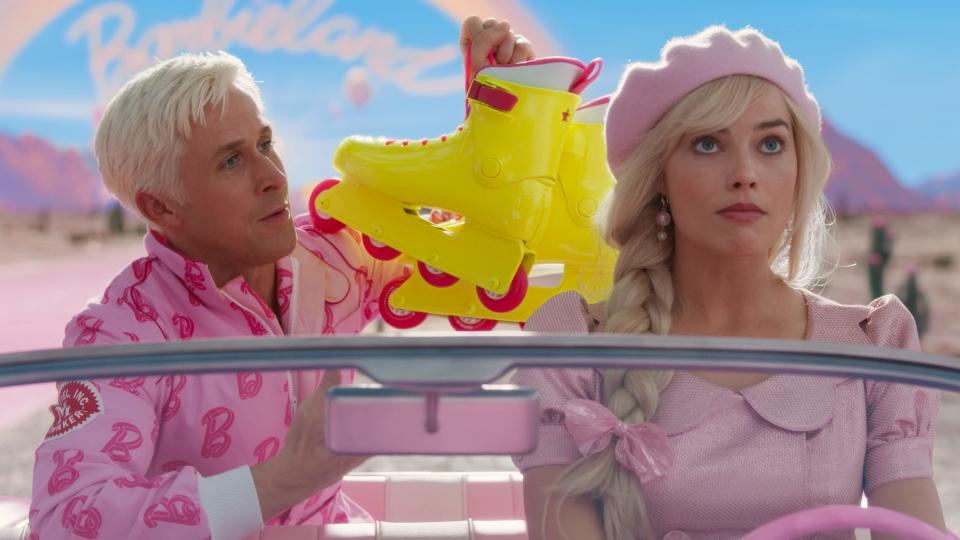
Perhaps we need to address the backlash more: “Barbie” has incited criticisms of pushing a “feminist agenda” and has been slammed by right-leaning pundits ranging from Elon Musk to Ben Shapiro and Ted Cruz. Why? Well, from the insurrection to incel culture, “Barbie” comments on everything the right wing doesn’t want to be associated with.
Writer-director Gerwig said in a New York Times interview published after the film’s opening that she didn’t anticipate the political response, deftly adding that hopefully “Barbie” is an “invitation” for a wider discussion to “let go of the things that aren’t necessarily serving us as either women or men.”
Maybe “Barbie” really should lean into its political underpinnings: Isn’t equality the whole point of Barbie Land, after all?
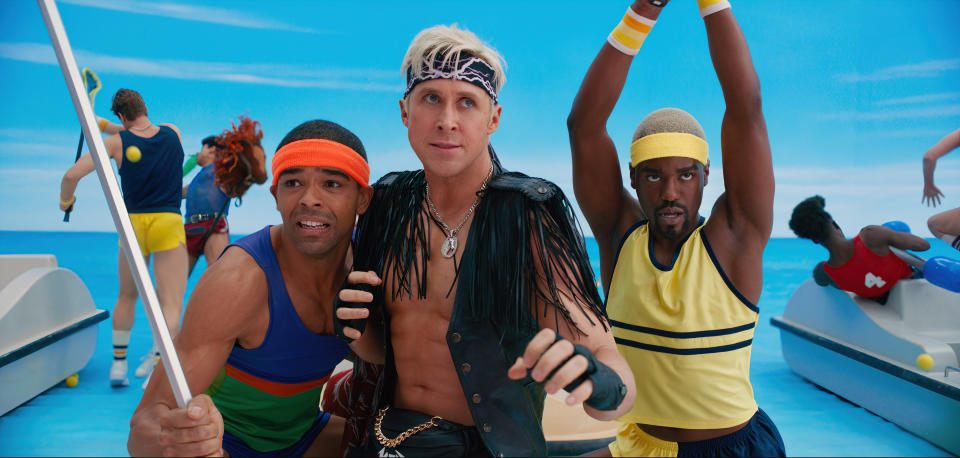
In the lead-up to its release, Mattel Films head Robbie Brenner told Time magazine that “Barbie” is “not a feminist movie.” It was a sentiment that multiple other Mattel sources echoed in the magazine.
But that statement directly undermines the onscreen talent’s wild (and pre-strike) press tour. Lead star and producer Robbie, instrumental in Gerwig and Baumbach’s complete creative freedom to write the script, responded to Brenner’s comments, telling the outlet, “It’s not that it is or it isn’t. It’s a movie. It’s a movie that’s got so much in it. We’re in on the joke. This isn’t a Barbie puff piece.”
But there were traces of something deeper afoot: Mattel executive Brenner admitted that Mattel executives were “white-knuckling it the whole time” when reading the script. In the film, a lowly (male) Mattel executive wonders, “I’m a man with no power, does that make me a woman?” and Ken (Gosling) walks into a hospital demanding to perform surgeries on patients simply because of his gender.
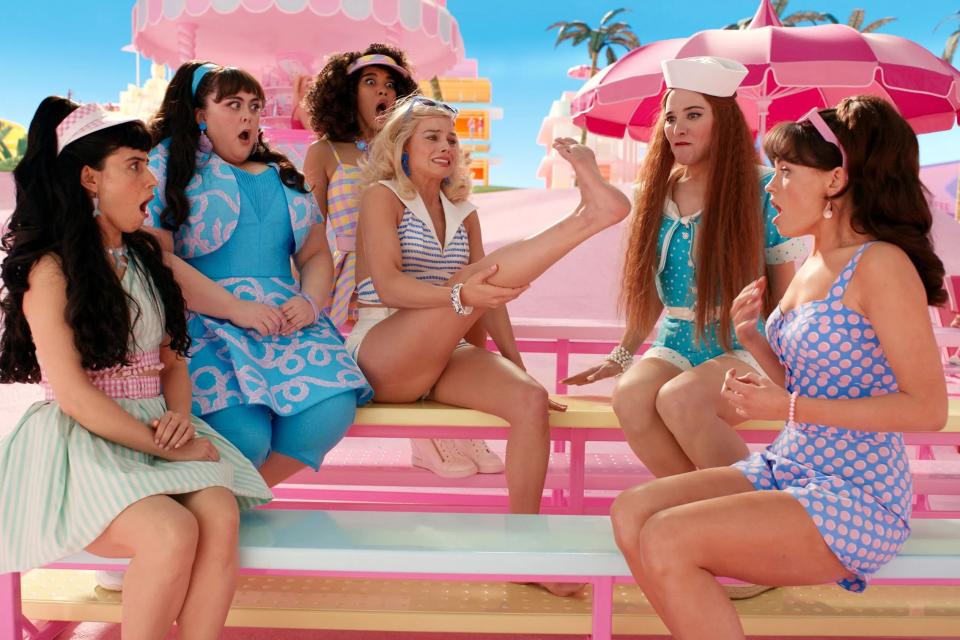
The real twist of “Barbie”? It’s about the dangers of being brainwashed and having a “spa day for my brain,” as one doll puts it. The film eventually becomes a race against time to “deprogram” Barbies from becoming complicit in a new patriarchy that has infected Barbie Land, courtesy of wide-eyed (and arguably now-incel) Ken, who just wants Stereotypical Barbie to be in love with him.
But the corporate machinators attached to “Barbie” seemingly thought it would be too much to use the term “feminist” when categorizing the film’s messaging.
Perhaps they learned the hard way: The publicity behind last year’s “Don’t Worry Darling” proved to be a cautionary tale for Warner Bros., thanks to conflicting “feminist” messages from the film’s stars and its director (plus, a film that is decidedly not feminist in its plot).
So, where does “Barbie” fit into all this? Well, the candy-colored world of Barbie Land, complete with a real Airbnb listing in Malibu and purchasable props, proved that perhaps hiding the feminist messaging during a publicity tour is the best way to fatten the bottom line.
But Mattel’s execs outright calling the film not feminist? Well, that’s a different tactic altogether. As IndieWire’s Kate Erbland wrote in her review, “Earth to Mattel brass: this film is deeply feminist.”
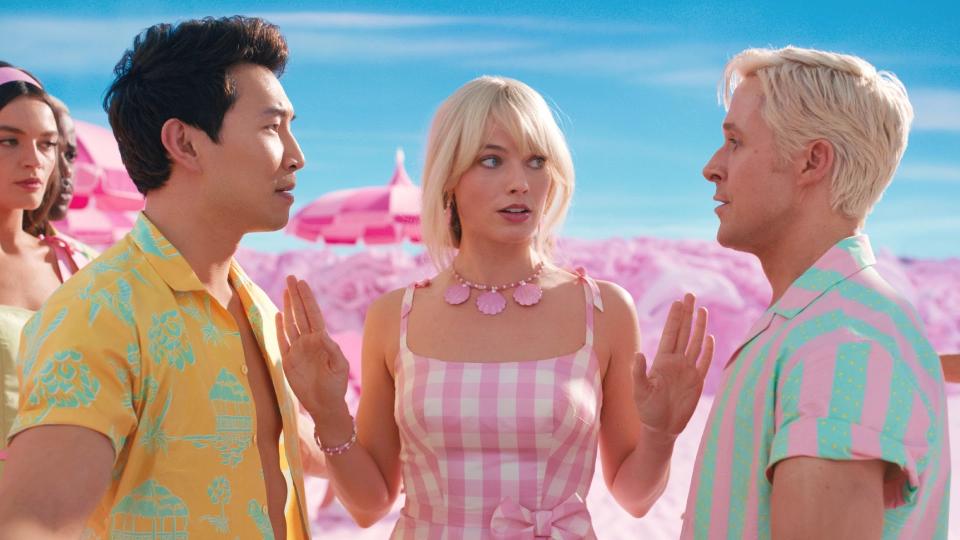
“Barbie” has generated Oscar buzz for Robbie and Gosling, as well as Gerwig and Baumbach’s script, but how will the press tour change from showcasing “Barbie” as a fun-loving, viral summer blockbuster to a serious awards contender outside of its crafts focus and buzzy soundtrack?
More importantly, will the “Barbie” cast, Mattel, and Warner Bros. finally embrace the revolutionary film’s fully feminist messaging? Heading into a fall awards season sans actors and screenwriters doing press given the ongoing SAG-AFTRA and WGA strikes, that messaging may have benefitted the film just a little earlier. Or, it’ll all just fall on director Gerwig to guide “Barbie” from easily bendable blockbuster to Best Picture contender.
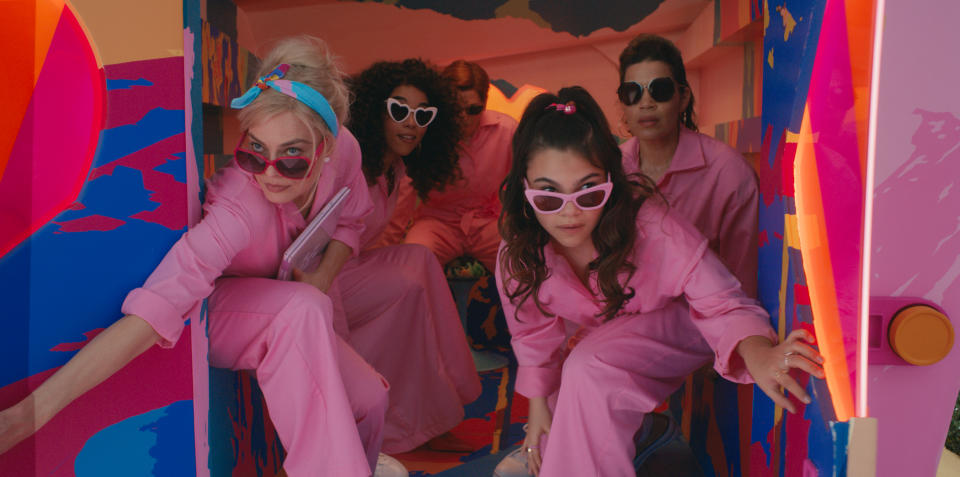
Perhaps avoiding the deeper messages of “Barbie” pre-release was all to serve the bottom line: Warner Bros. president of worldwide marketing Josh Goldstine recently told The Guardian that the campaign for “Barbie” was simultaneously meant to be “bold” but also universally relatable on the surface, mostly to keep the film as bipartisan as possible. Why ruffle any feathers and alienate those viewers who are pro-patriarchy?
“We didn’t want to show up as a sweet little girl Barbie movie. We wanted to show up as a bold event that is going to deliver some shock and awe,” Goldstine said. “We wanted to be true to what Greta’s vision for the movie was.”
Goldstine also compared opening a movie like “Barbie” to “running a presidential campaign.”
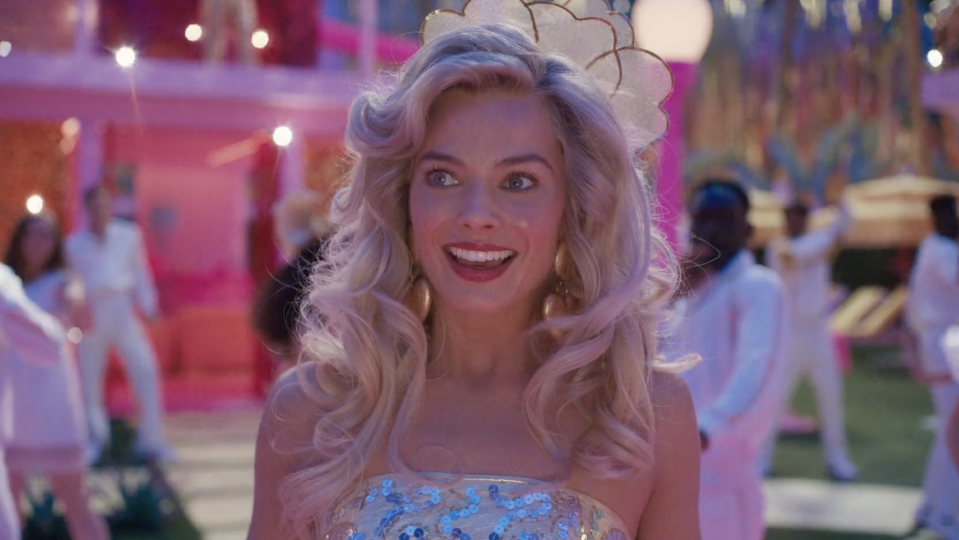
“It’s because the movie spoke to the culture,” he added. “‘Barbie’ shattered the glass ceiling on female IP. I think that’s only good for the business and for the culture. I think its commercial success speaks to something deeper. It’s clearly satisfying a need that the audiences feel in terms of being seen. I think, ironically, this story about a doll is making a tremendous number of people feel understood.”
And those people feel seen not because of the legacy of the doll itself but because of Baumbach and Gerwig’s complete evisceration of the expectations that Barbie (the doll) puts on women everywhere. America Ferrera’s viral speech in the film, which she co-wrote with Gerwig, has circulated on social media and been published in full by numerous magazines as a 10 Commandments-esque symbol of a universal (gendered) truth.
“I’m just so tired of watching myself and every single other woman tie herself into knots so that people will like us,” Ferrera’s character says. “And if all of that is also true for a doll just representing women, then I don’t even know.”
Beneath the criticisms of its obvious capitalist underpinnings — this movie will sell toys, anyway — “Barbie” has a subversive message to behold, so why not embrace it? Just as Barbie sheds her plastic persona to become a real woman — and go to her first gynecological appointment — the film has a kicker reference to the last political frontier for women: bodily autonomy in America’s actual constitution.
Barbie saved Barbie Land, but who will save our own Real World? No wonder Gerwig’s “Barbie” has found the audience it deserved, despite Mattel and Warner Bros. playing it safe.
A Warner Bros. release, “Barbie” is currently in theaters.
Best of IndieWire
Where to Watch This Week's New Movies, from 'Talk to Me' to 'Haunted Mansion'
Quentin Tarantino's Unmade Movies: 21 Projects the Filmmaker Almost Directed
Sign up for Indiewire's Newsletter. For the latest news, follow us on Facebook, Twitter, and Instagram.

